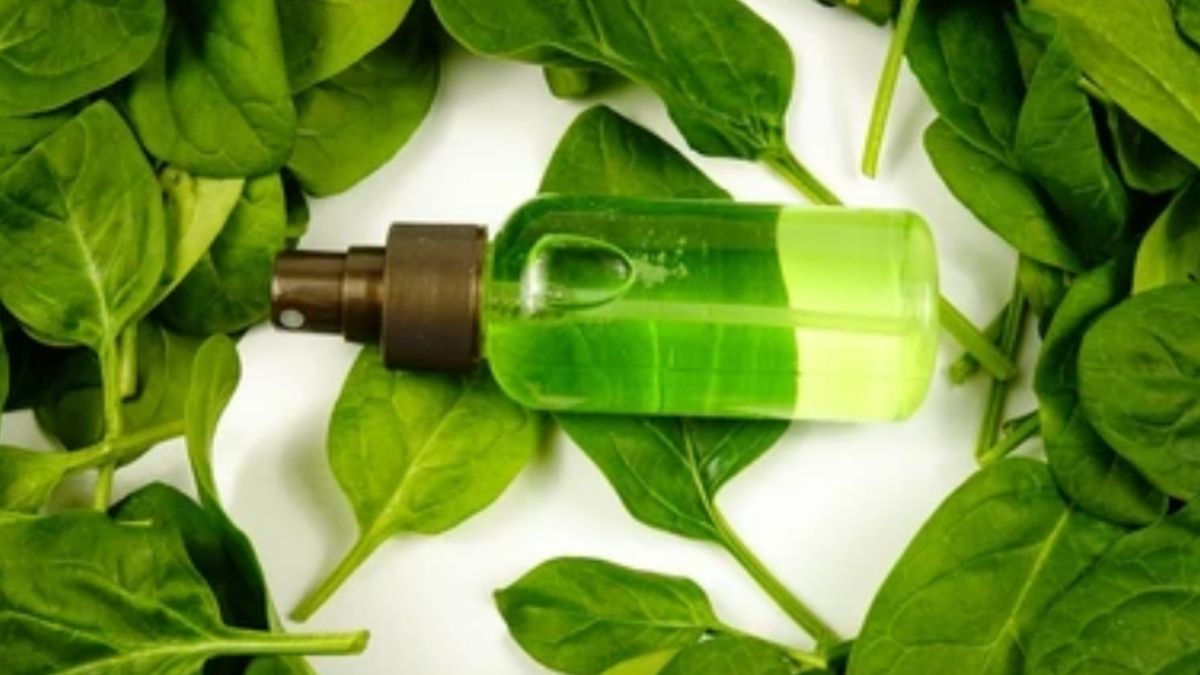
Spinach is a powerhouse of nutrients and dietary fibre and is a staple in healthy diets all over the world. Packed with a host of compounds, including vitamins, antioxidants, glutamine, and zinc, spinach holds promise as a natural remedy for wound healing. A recent study featured in Scientific Reports has shed light on the potential healing properties of spinach extract, suggesting that it could aid in the recovery of wounds similar to those experienced by individuals with diabetes.
Table of Content:-
Spinach Extracts Can Heal Wounds

The study revealed that chronic diabetic ulcers pose a significant challenge for those with diabetes, affecting approximately 15% of individuals with the condition worldwide. These ulcers can linger for months or even years, often leading to severe complications and, in some cases, limb amputation. To find a potential cure for such ulcers, the researchers uncovered the potential benefits of spinach extract for promoting the healing of diabetic wounds.
Also Read: Spinach Banana Smoothie Recipe To Control High Blood Pressure
To assess the effectiveness of spinach extract, researchers conducted experiments involving 72 adult rats, since the genetic makeup of lab rats is close to humans. These rats were divided into six groups, each receiving specific treatments. Notably, the most significant improvements in wound recovery were observed in rats that received two months of spinach extract, both before and after the induction of diabetes.
The Science Behind Spinach Healing Diabetic Wounds

To comprehend how spinach extract aids in wound healing, it's essential to grasp the basics of the healing process. Wound healing involves various elements, including white blood cells, platelets, proteins, nutrients, and oxygen-bound red blood cells. All of these components play pivotal roles in the body's ability to repair damaged tissue.
However, for individuals living with diabetes, wound healing poses a unique challenge. High blood sugar levels can lead to stiff blood vessels, reducing oxygen supply to tissues and impairing the function of white blood cells. This combination makes wounds more susceptible to infections and may lead to chronic ulcers, particularly in lower limbs.
Also Read: Dealing With Diabetic Foot Ulcers? Here're The Expert Tips To Manage Them Effectively
Fortunately, spinach is rich in essential nutrients and compounds that contribute to its wound-healing potential:
- Its antioxidants protect the cells from damage.
- Vitamins C, E, K, and phytochemicals found in spinach promote collagen formation, stimulate cellular growth, and increase blood vessel density.
- Spinach also contains glutamine, an amino acid crucial for wound-healing processes.
- Zinc found in spinach plays a role in protein development, including collagen, a vital component of tissue repair.
Results Of The Study
The study's most promising results were seen in rats that received spinach extract both before and after diabetes induction. This suggests that there may be potential for preventive use of spinach extract and should be a part of everyone's regular diet, as it can benefit even non-diabetic individuals by promoting tissue growth and reducing inflammation at wound sites.
It's essential to note that while this study holds promise, further research involving human subjects is necessary to validate these findings. So before you include spinach in your regular diet based on this advisory, maybe consider a few aspects like food allergies and dietary restrictions first.
Nevertheless, the healing power of spinach extract highlights the incredible potential of nature's bounty in enhancing our well-being. This discovery brings hope to individuals dealing with these challenging ulcers, providing a glimmer of optimism on their path to recovery.
Also watch this video
How we keep this article up to date:
We work with experts and keep a close eye on the latest in health and wellness. Whenever there is a new research or helpful information, we update our articles with accurate and useful advice.
Current Version